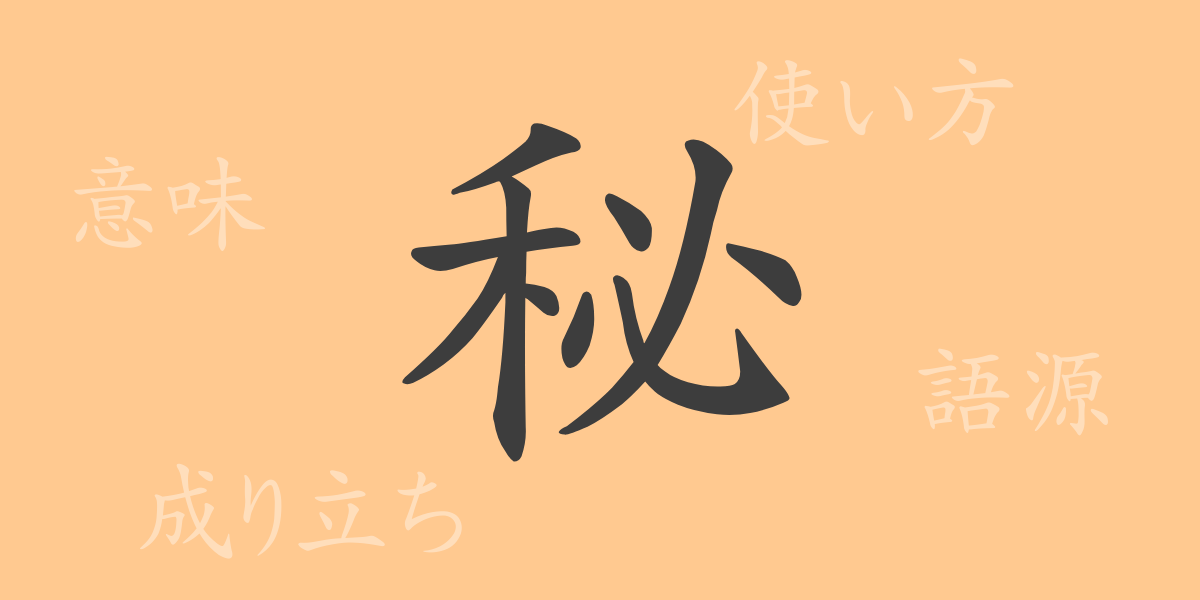Each character inscribed in Japanese literature carries a profound history behind its form and meaning. This time, we spotlight one of Japan’s commonly used kanji, “秘” (hi), to unravel its mysterious charm. The character “秘” (hi) is an essential kanji frequently used in our daily lives. We will explore its rich world, from its origin and meaning to its usage, including idioms and proverbs.
Origin of 秘 (hi)
The kanji “秘” (hi) is a character that originated in ancient China, and its etymology is derived from a pictogram meaning “to seal a container.” Originally, the radical “宀” (ukanmuri) represented a house, “示” (shimesu) symbolized rituals, and “必” (kanarazu) meant the lid of a container. When combined, these elements formed “秘” (hi), implying the act of sealing and concealing important items related to the house or rituals.
Meaning and Usage of 秘 (hi)
The character “秘” (hi) carries meanings such as “to conceal” and “secret,” and it is used in contexts involving hiding something, keeping it confidential, or referring to something secret. For instance, “秘密” (himitsu) refers to something that must not be known, and “秘伝” (hiden) signifies special skills or knowledge passed down to a limited number of people. Words containing this character often convey a sense of special value or importance.
Reading, Stroke Count, and Radical of 秘 (hi)
To correctly understand the character “秘” (hi), it is important to know its readings and structure.
- Reading: The on’yomi (音読み) is “ヒ” (hi), and the kun’yomi (訓読み) are “ひ.める” (hi.meru) and “ひそ.か” (hiso.ka).
- Stroke count: The character “秘” (hi) consists of 10 strokes.
- Radical: The radical of this kanji is “禾” (nogihen).
Idioms, Proverbs, and Phrases Using 秘 (hi) and Their Meanings
Many idioms and phrases in Japanese contain the character “秘” (hi). These are deeply rooted in the Japanese language and enable rich expressions.
- 秘密 (ひみつ, himitsu): Something that must not be known by others, confidential matters.
- 秘伝 (ひでん, hiden): Special skills or knowledge passed down to a limited number of people.
- 秘書 (ひしょ, hisho): A position or person responsible for managing important documents and maintaining confidentiality.
- 秘境 (ひきょう, hikyou): A remote, unexplored area where few people have ventured.
- 秘訣 (ひけつ, hiketsu): Special techniques or tips for success.
Summary of 秘 (hi)
The kanji “秘” (hi) has symbolized concepts cherished by people from its origin to the present day. In our language, “秘” (hi) continues to carry meanings related to concealing or valuing special matters, and its use spans from literature to everyday conversation. Understanding the meanings embedded in this single character allows us to appreciate the depth of the language even more.

























